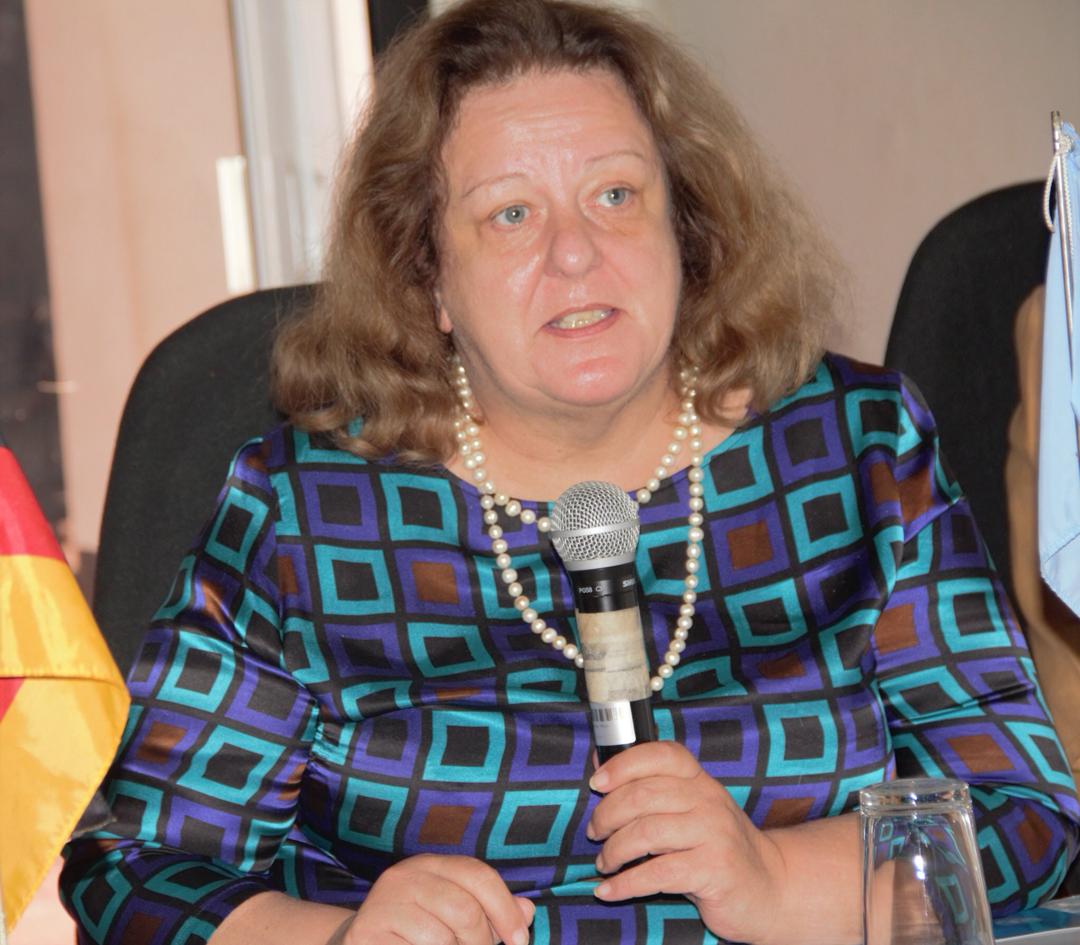The German Government, through its development bank, KfW, today contributed €10million to the second phase of the Education Development Fund (EDF) to improve access to quality education for Zimbabwe’s children.
The funds will be used to support the strengthening the resiliency of the education sector through building capacity in Disaster Risk Reduction at national, sub-national and school level. A national DRR strategy is to be developed through these funds that would guide the MoPSE’s preparedness and response during natural disasters and ultimately ensuring continuity of schooling for children. In drought affected schools the funds will look at supporting more sustainable approach to school feeding and mitigate school drop outs due to impact of drought. The funds will continue supporting WASH in school and building capacity in psychosocial support.
“The timely and immense support from Germany to Cyclone Idai emergency response resulted in minimum interruption of children’s schooling and we are pleased that this new funding will enable the Ministry to institutionalise disaster risk reduction and resilience building within our education system,” said Minister of Primary and Secondary Education, Hon. Paul Mavima.
The new UN Resident Coordinator to Zimbabwe, Maria Valle Ribeiro appreciated the Government of Germany for the unwavering support to Zimbabwe.
“The Government and People of Germany are long-term partners of the UN System and in this regard of UNICEF contributing to improving educational outcomes in Zimbabwe. As you may know, UNICEF’s mandate remains working towards realisation of children’s rights and pursuing partnerships with like-minded players to deliver on the same. This role is part of the broader agenda of the One UN agenda. Though various agencies have their niches, they all complement each other to deliver as one
“I am delighted to join you on this special launch signifying the long partnership of the German Government with the Government of Zimbabwe and the UN. I am especially pleased that the Euro 10 million funds committed by Germany today will focus largely on strengthening the resiliency of the education sector, and hence making the education system more ready to respond to the external shocks and contribute to the provision of quality education under the Sustainable Development Goals, specifically SDG4,” Madam Riberio said.
She expressed her zeal to seeing the results of the long investment in the education sector and UN continued collaboration in advancing the rights of children in Zimbabwe.
Germany has been one of the major contributors to EDF since its inception in 2010 (as the Education Transition Fund), having donated over €32 million from 2011- 2015; and an additional €14 million to the first phase of the EDF. In 2018, Germany contributed an additional Euro 15 million and later Euro 25 million to support the School Improvement Grants (SIG), including school feeding; Disaster Risk Management; reliable access to water and sanitation services for schools; and the implementation of the new curriculum. This support from the German Government has ensured that the gains in the education sector are sustained.
“The Funding made available by the German Government has helped us to protect and continue building upon the successes of the EDF. Our focus should now be upon sustaining those gains, especially this year as we celebrate the 30th Anniversary of the Convention on the Rights of the Child,” said UNICEF Representative, Laylee Moshiri.
“This additional funding of the EDF in Zimbabwe demonstrates Germany’s commitment to ensure access to quality schooling for all children in Zimbabwe. It also demonstrates my Government’s commitment to assist those in need,” said German Ambassador H.E. Dr Thorsten Hutter.
About Education Development Fund
The Education Development Fund is led by the Government of Zimbabwe, in partnership with UNICEF and is supported by the Governments of Germany and the United Kingdom. The second phase of the Education Development Fund (EDF II) 2016-2020 will give provide additional equity in access, learning outcomes and improving the education system. It will improve targeting of the most marginalised children, especially those with disabilities
